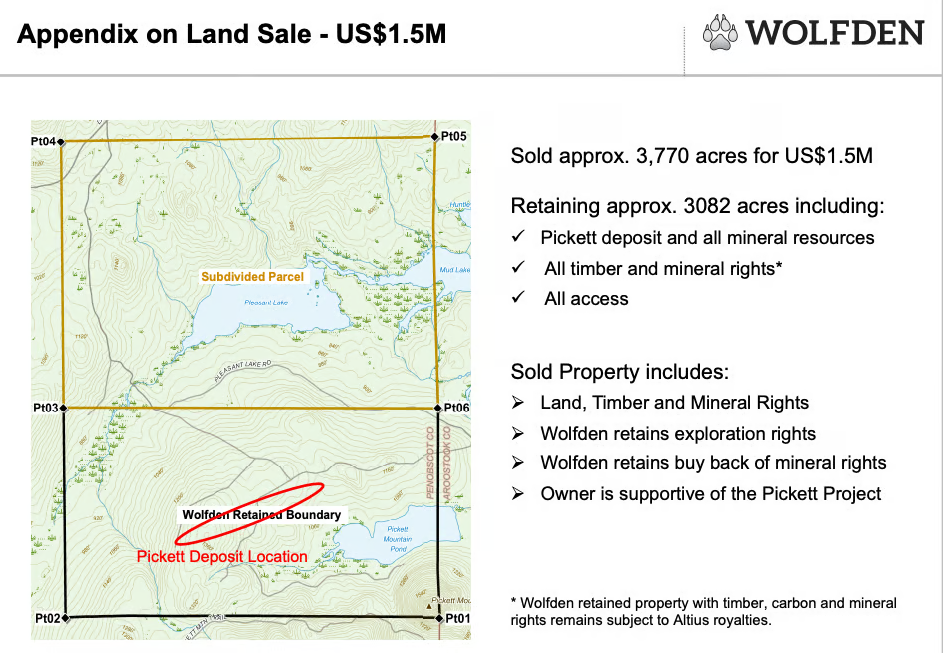Canadian mining exploration company Wolfden Resources Corporation will sell 3,770 acres of the company’s 6,862 acre timberland property in northern Penobscot County to one of its stakeholders, Altius Minerals Corporation, in an apparent effort to finance exploration work at a site in Nevada.
As part of the deal, Wolfden will sell the land, timber and mineral rights on the property, which includes all of Pleasant Lake and part of Mud Lake, while retaining the option to explore and buy back the mineral rights for five years.
Wolfden will retain ownership of the Pickett Mountain deposit and all of its mineral resources. The deal is expected to close for $1.5 million at the end of January.
(In Maine, landowners typically own their land from “the surface on down unless the mineral rights have been intentionally separated from the surface ownership by legal agreement,” according to the Maine Geological Survey.)
Reached by email, Wolfden CEO Ron Little did not comment on whether the deal would change the company’s plan for the Pickett Mountain site, where Wolfden has pursued mining for zinc, lead, copper and silver for several years.
When asked why the company was selling the land, he pointed back to the two most recent press releases. In late October, the company announced that it would sell “some of its large land holdings in the USA, with an estimated value that could finance the Rockland option drill program and cash payments.” The Rockland property is a site in western Nevada where the company plans to drill for gold and silver.

Chad Wells, vice president of business development for Altius, said in an email that the company has “no real direct ownership or operational control over the Pickett [Mountain] project and/or its contained lands. We are simply a project royalty holder and minority shareholder in Wolfden, and hence our interest is quite passive.”
Altius does not develop mines, said Wells, but invests in resources. Buying the land from Wolfden, said Wells, “was a concession in our passive royalty agreement structure to allow Wolfden to sell certain timber rights to its direct benefit, not ours.”
Wolfden was the first company to test Maine’s appetite for metal mining after the passage of a stringent 2017 mining law, applying twice for a rezoning of the northern Penobscot County property. The company needed permission to rezone the land before it could apply to the Maine Department of Environmental Protection for a permit to mine there.
Wolfden withdrew its first application after commissioners with the Land Use Planning Commission, which governs development in the unorganized territories, indicated they would reject it because LUPC staff said it contained numerous “errors, omissions and inconsistencies.
Last February, LUPC staff rejected Wolfden’s second attempt to apply for a rezoning after LUPC staff said the “project does not represent environmentally responsible mining,” and that approving the rezoning would not meet the commission’s obligation to “prevent the despoliation, pollution and detrimental uses of the water.”







